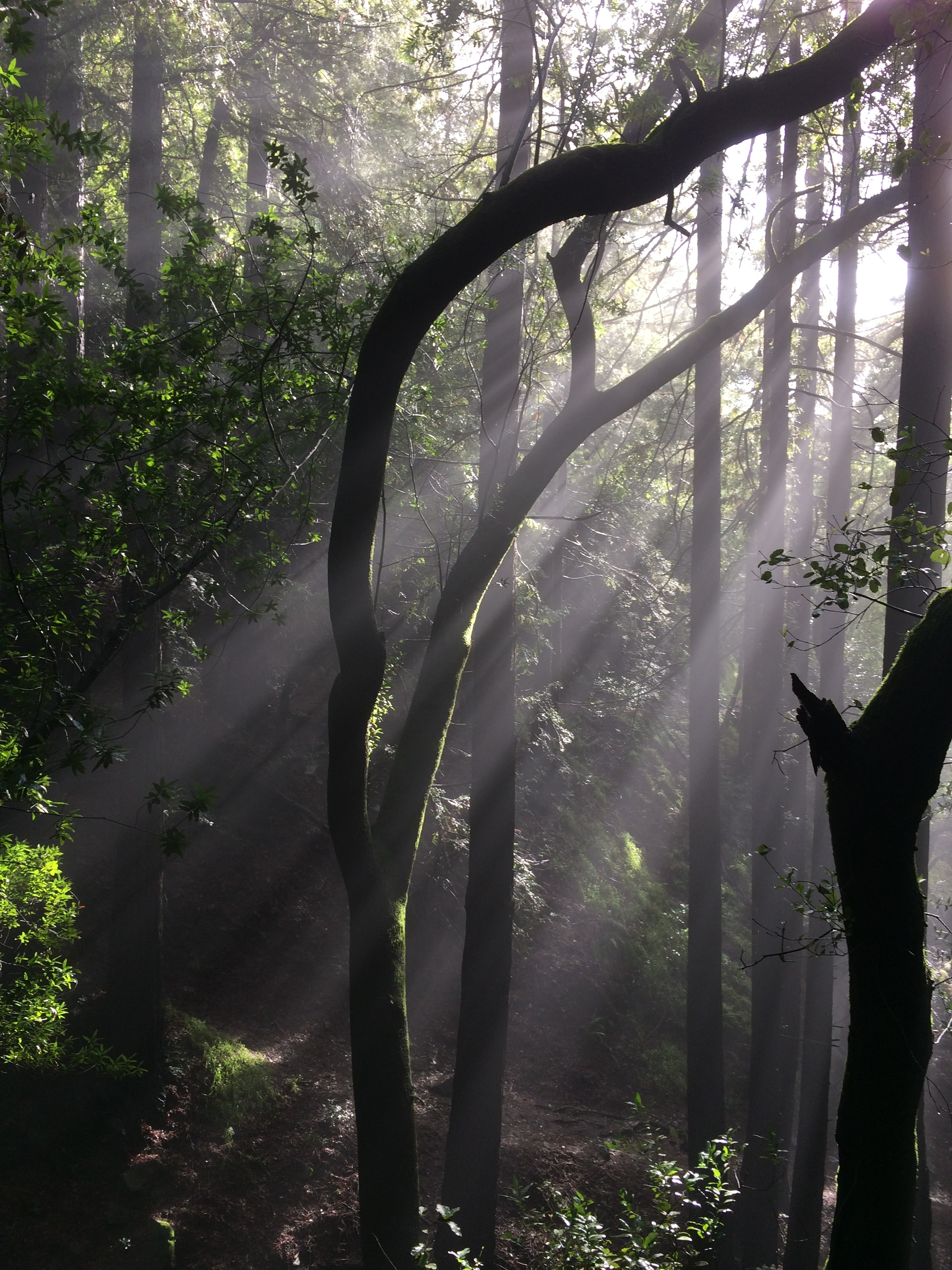As our country spins with conflict and polarized debate, as we face great challenges politically, environmentally, and socially, our ability to care for and nourish ourselves with deep presence has never been more important.
Listening has been a key part of my own contemplative path since the early years of my meditation practice. These last few weeks, with torrents of long overdue rain falling here in California, I've often been reminded of one of my favorite passages by Thomas Merton.
"The rain surrounded the cabin with a whole world of meaning, of secrecy, of rumor. Think of it: all that speech pouring down, selling nothing, judging nobody, drenching the thick mulch of dead leaves, soaking the trees, filling the gullies and the crannies of the wood with water, washing out places where men have stripped the hillside... Nobody started it, nobody is going to stop it. It will talk as long as it wants, the rain. As long as it talks, I am going to listen."
At its core, mindfulness can be understood as a practice of deep, whole-hearted listening. And at times like these, feeling soothed and nourished by deep listening is essential to meet the challenges that lie ahead.
What does it take to really listen? Recall the last time you stopped long enough to listen to the sound of the rain, the wind, or a baby breathing? What do we have to put aside or let go of to truly listen?
"Listening with the ears is less fine than listening with the heart."
— Hsu T'ang Chih-Yu, Listening to the Snow
In formal meditation practice, we learn how to listen whole-heartedly. And we listen to everything. First, we listen to our body — to the simple, steady, grounding sensations of sitting (standing, or walking). We tune in and listen to the breath — the simple, steady rhythm of life energy entering and exiting the body. We listen to the heart — to the swells, flushes and tides of feeling. We listen to mind — to the mercurial, flashing movements of thought and meaning.
And eventually, as our listening grows finer, we listen to the listening — to awareness itself, bright, lucid and clear.
I was raised Jewish, and even though I have spent decades studying and practicing Buddhism, parts of the tradition and its theistic language still speak to me. When I first started meditating in my early twenties, I had a profound insight into the central prayer of my birth religion: "Shma..." which means "Listen."
In Judaism (and its sister Abrahamic religion of Islam), the name of God is a big deal. In the Torah, God is referred to by many names: Adonai (“Lord”), Elohim (“Our God”), and Hashem, which means simply “The Name.”
The actual name of God is never spoken in Judaism. It is written with four letters: YHWY. Hebrew is written without vowels, so no now knows how it is actually pronounced. (Later scholars suggested it was “Yahweh” which is how we get “Jehovah” — the letters for Y/J, and W/V being the same in Hebrew). Even in English today, religious Jews will abstain from writing the word “God” and will instead write “G-d” out of respect for the mystery and power of whatever that word actually signifies in reality.
Why am I sharing all this and what does it have to do with listening? Twenty years ago, contemplating all of this — the mysteries of prayer, language, meditation and awakening — an insight arose in me:
To say the name of God, you must first know the name of God.
To know the name of God, you must first hear the name of God.
To hear the name of God, you must listen very deeply.
To listen in this way is to say the very name itself.
And so it is in our spiritual practice. I am not making a philosophical or metaphysical parallel here, nor am I suggesting that Buddhist and Jewish practice arrive at the same goal. (I'm agnostic about that.) Rather, I'm pointing to the power and potential that resides in each of us as human beings to listen deeply.
So I encourage you today: Go inward. Listen.
Keep listening, whatever comes.
And let yourself be nourished by it: by the silence, by the rain, by the vibrant listening itself. Slow down and give curious, patient attention to your experience and you will open the door to a profound sense of presence.


